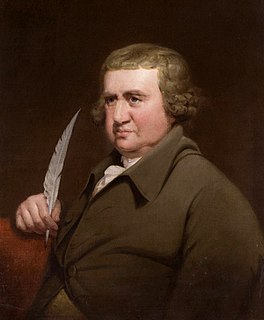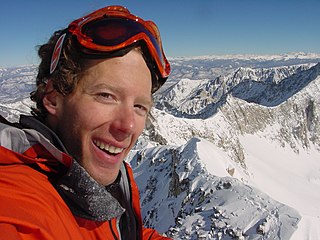A Quote by Erasmus Darwin
So erst the Sage [Pythagoras] with scientific truth In Grecian temples taught the attentive youth; With ceaseless change how restless atoms pass From life to life, a transmigrating mass; How the same organs, which to-day compose The poisonous henbane, or the fragrant rose, May with to-morrow's sun new forms compile, Frown in the Hero, in the Beauty smile. Whence drew the enlighten'd Sage the moral plan, That man should ever be the friend of man; Should eye with tenderness all living forms, His brother-emmets, and his sister-worms.
Quote Topics
Atoms
Attentive
Beauty
Brother
Change
Compile
Compose
Day
Drew
Enlighten
Ever
Eye
Forms
Friend
Frown
Hero
His
How
Life
Living
Man
Mass
May
Moral
Morrow
New
Organs
Pass
Plan
Poisonous
Restless
Rose
Sage
Same
Scientific
Scientific Truth
Should
Sister
Smile
Sun
Taught
Temples
Tenderness
Truth
Whence
Which
Worms
Youth
Related Quotes
The question that faces every man born into this world is not what should be his purpose, which he should set about to achieve, but just what to do with life? The answer, that he should order his life so that he can find the greatest happiness in it, is more a practical question, similar to that of how a man should spend his weekend, then a metaphysical proposition as to what is the mystic purpose of his life in the scheme of the universe.
Physiologically, man in the normal use of technology (or his variously extended body) is perpetually modified by it and in turn finds ever new ways of modifying his technology. Man becomes, as it were, the sex organs of the machine world, as the bee of the plant world, enabling it to fecundate and to evolve ever new forms. The machine world reciprocates man's love by expediting his wishes and desires, namely, in providing him with wealth.
When compiling his great dictionary, the young Noah Webster travels to the Himalayas, where he climbs to the cave of the world's wises man. 'O, great sage,' he says, 'tell me the meaning of life.' The sage sits Noah at his feet and, with great solemnity, commences to unfold the meaning of life. When finished, he places a hand on the young man's shoulder and says, 'Do you have any other questions, my son?' Noah flips a page in his notebook and says, 'You wouldn't know the meaning of lift, would you?'
For man holds in his mortal hands the power to abolish all forms of human poverty and all forms of human life. And yet the same revolutionary beliefs for which our forebears fought are still at issue around the globe -- the belief that the rights of man come not from the generosity of the state, but from the hand of God.
Man, no doubt, owes many other moral duties to his fellow men; such as to feed the hungry, clothe the naked, shelter the homeless, care for the sick, protect the defenseless, assist the weak, and enlighten the ignorant. But these are simply moral duties, of which each man must be his own judge, in each particular case, as to whether, and how, and how far, he can, or will perform them.
The only way your powers can become great is by exerting them outside the circle of your own narrow, special, selfish interests. And that is the reason of Christianity. Christ came into the world to save others, not to save himself; and no man is a true Christian who does not think constantly of how he can lift his brother, how he can assist his friend, how he can enlighten mankind, how he can make virtue the rule of conduct in the circle in which he lives.
Five hundred years before Christ was born, the Greek philosopher Heraclitus told his students that "everything changes except the law of change". He said: "You cannot step in the same river twice." The river changes every second; and so does the man who stepped in it. Life is a ceaseless change. The only certainty is today. Why mar the beauty of living today by trying to solve the problems of a future that is shrouded in ceaseless change and uncertainty-a future that no one can possibly foretell?
It seldom happens that a man changes his life through his habitual reasoning. No matter how fully he may sense the new plans and aims revealed to him by reason, he continues to plod along in old paths until his life becomes frustrating and unbearable-he finally makes the change only when his usual life can no longer be tolerated.
How fleeting are the wishes and efforts of man! how short his time! and consequently how poor will his products be, compared with those accumulated by nature during whole geological periods. Can we wonder, then, that nature's productions should be far 'truer' in character than man's productions; that they should be infinitely better adapted to the most complex conditions of life, and should plainly bear the stamp of far higher workmanship?
So many people live within unhappy circumstances and yet will not take the initiative to change their situation because they are conditioned to a life of security, conformity, and conservatism, all of which may appear to give one peace of mind, but in reality nothing is more damaging to the adventurous spirit within a man than a secure future. The very basic core of a man's living spirit is his passion for adventure. The joy of life comes from our new experiences, and hence there is no greater joy than to have an endlessly changing horizon,for each day to have a new and different sun.
God has come again and again in various Forms, has spoken again and again in different words and different languages the Same One Truth - but how many are there that live up to it? Instead of making Truth the vitalbreath of his life, man compromises by making over and over againa mechanical religion of it - a handy staff to lean on in times of adversity, a soothing balm for his conscience or a tradition to be followed.



































